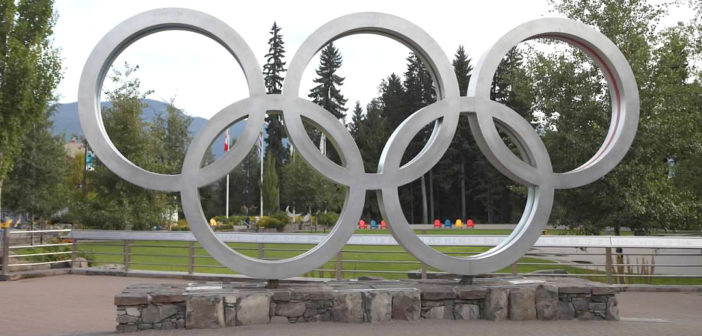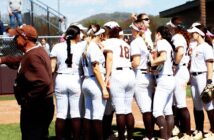Last week, the International Olympics Committee postponed the Tokyo 2020 Olympics to the summer of 2021. Only for the two World Wars have the Games even been canceled, making the postponement unprecedented given the circumstances.
The IOC is not the first to cancel a large sporting event, but the lack of international competition this summer will leave a vacancy for many sports fans. For hundreds of years, the Olympics have signified a period of international unity, where individuals from all over the world come together to watch their countries compete for gold medals.
In a time where the fight against the coronavirus pandemic has brought the world together, the Olympics would have served as an additional unifier. Now, the festivities will have to wait until 2021 to unfold — and the athletes who worked hard to qualify are forced to wait as well.
“The Olympics is unique not just because of its size and scope… but it also has a different sense of camaraderie to it,” said John Branch, a sports journalist for The New York Times. “Everything is sort of a feel-good story there… Generally, there is just a sense of good sportsmanship. Somehow, that permeates the Olympics in ways that we don’t always see in sports in North America or Europe, or wherever else.”
Not only will fans feel the effects of missing out on the Olympics, but many journalists were planning on attending and covering the Games — only to have their trips canceled or put on hold.
Alex Coil, a journalist from Arizona State University’s The State Press, was planning on attending the 2020 Olympic games. Now, that opportunity no longer exists.
“International competition has been something that I’ve been obsessed with my entire life, (with) the World Cup, the World Baseball Classic, those kinds of games,” Coil said. “Baseball is my favorite sport, and baseball is coming back (to the Olympics) this year. Getting to see players from across the world in the Tokyo Dome, which is one of the greatest arenas in the world, was going to be big. Being at the Olympics was a dream scenario.”
Many sports are cyclic in nature, and athletes depend on the structure of the calendar year to ensure their readiness for competition. For some athletes, the Olympics marked the end of a grueling period of training, with the hope of an Olympic medal as reward.
Due to the coronavirus pandemic, athletes are losing out on precious time they can’t get back.
Branch touched on what the cancellation means for some athletes.
“In my head is a story I just wrote about the climber Adam Ondra, who is probably the best climber in the world,” Branch said. “He set his whole rock climbing career aside to chase the Olympics and compete indoors, which he doesn’t love doing. One year was hard enough to devote to going to the Olympics. Now, does he really want to do it for a second year instead of climbing the big walls outside in Yosemite?”
More than just being a monumental sporting event, the Olympics represented a significant spotlight for the city of Tokyo.
“I think it’s good for a commercial purpose, too,” said Kyo Torres, a Stuart Hall High School student from San Francisco who spends his summers in Tokyo. “More people exploring Japan is great, and it’s always good to have more tourists bringing in revenue and money for the economy. When I first heard the Olympics were going to be in Tokyo, I was really excited.”
The fact the Games have been merely postponed, rather than being canceled outright, makes the decision easier to accept, Branch said.
Branch also said there might be a strange payoff at the end of all of this, and more sports than normal may be starting up this summer, filling the Olympics-sized hole in the sports world.
Eventually, the time will come when sports leagues around the world resume or restart their seasons, Branch said.
Until that happens, however, people must be patient in waiting for sports to return, said Christopher Clarey, a sports journalist for The New York Times. If sports allow fans to return too early, there could be dangerous consequences, he said.
“In the sports prism, what’s interesting is that this is the first time in my memory where sports themselves can be deadly to people,” Clarey said. “Just the very act of gathering to consume and enjoy sports, or even to play sports, is hazardous. That’s what makes this so unusual, and that’s why it’s very important to have a clear understanding of the risks.”
The 2021 Olympics are set to open on July 23, 2021, and close on Aug. 8, 2021. The Paralympic games will open on Aug. 24 and close on Sept. 8, 2021.






Comment policy
Comments posted to The Brown and White website are reviewed by a moderator before being approved. Incendiary speech or harassing language, including comments targeted at individuals, may be deemed unacceptable and not published. Spam and other soliciting will also be declined.
The Brown and White also reserves the right to not publish entirely anonymous comments.